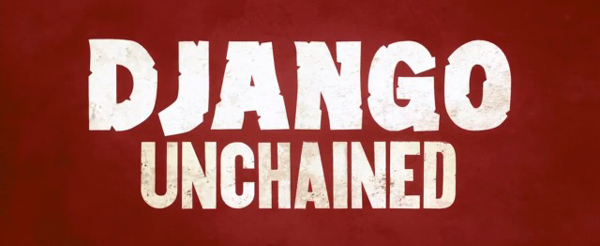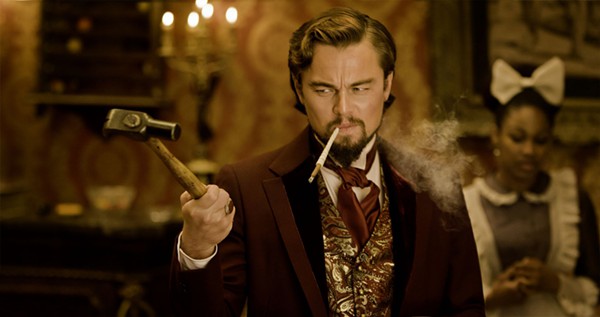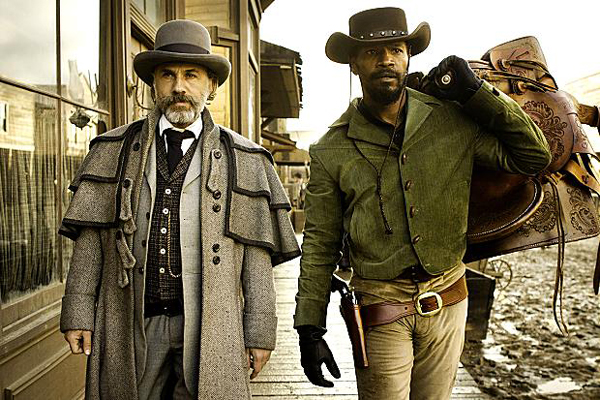
Django Unchained is poetic justice on steroids. This isn’t unexpected from Quentin Tarantino, whose last movie featured American soldiers shooting Hitler in the face with a machine gun and Jews burning down a theater full of Nazis. Here, an ex-slave literally whipping a slave owner and killing a plantation’s worth of rednecks fits nicely.
The usual Tarantino staples make appearances. The gore is overt and even comedic at times. The cinematography begins with a bit of 70s direction (thankfully the exaggerated camera zooms become more scarce past the first 10 minutes). The anachronistic music worked wonderfully, with the tough persona of rap music juxtaposing against a line of submitted slaves and the modernized bluegrass filling in where appropriate. There almost hints to be a torture scene that we thankfully did not need to endure. And for good measure, a couple throwback actors like Don Johnson get small roles.
For a 3 hour affair, the pacing keeps the movie fun and surprisingly quick. The film jumps between action and plot smoothly and is never long between jokes. The dialog in the film is well scripted but I do feel that it falls short of Tarantino greatness. There are usually iconic scenes in his films, just before a conflict gets physical, where the audience can feel the nervous tension building to insufferable levels. It’s not that Django Unchained doesn’t have these moments- DiCaprio’s speech about skull phrenology comes closest- but there is a bit less focus on character monologue.

Aside from Tarantino’s continuing insistence to play a role in his films, the casting was great. Christoph Waltz is no doubt the heart of the movie but without Leonardo DiCaprio’s debonair southern charm in the role of the villain, I doubt much about the conflict would have been memorable. The German Dr. Schulz’s stilted inflection contrasted plantation owner Calvin Candie’s smooth charisma for one of the great rivalries of the year. Jamie Foxx played the badass as he can, starting slow before building into a more rounded character. Even Samuel L. Jackson gives his best performance which is certainly not always the case. I thought it was amusing that Walter Goggins, famous for roles like Shane Vendrell in The Shield and Boyd Crowder in Justified, gets typecast as a white supremacist good ol’ boy once again, but he does fit the role well.
If I had one gripe about Django Unchained, it’s that the gunplay is unimaginative. Sure, seeing splashes of blood spray off bodies for every bullet is fun but it is a one trick affair. Better choreography was sorely needed here, and it seems to me that a lot of the shooting at the end of the film was edited out to avoid this very banality.

Nothing stops Django Unchained from having a whole lot of fun with a touchy subject, however, and that’s the niche Quentin Tarantino is building himself now. It’s a great fit for his homage-laden personality and vintage cinematic knowledge. At a time when it’s so hard to shock movie audiences, stepping away from that solitary goal and just letting loose and pushing purposefully over-the-top feels just fine to me.